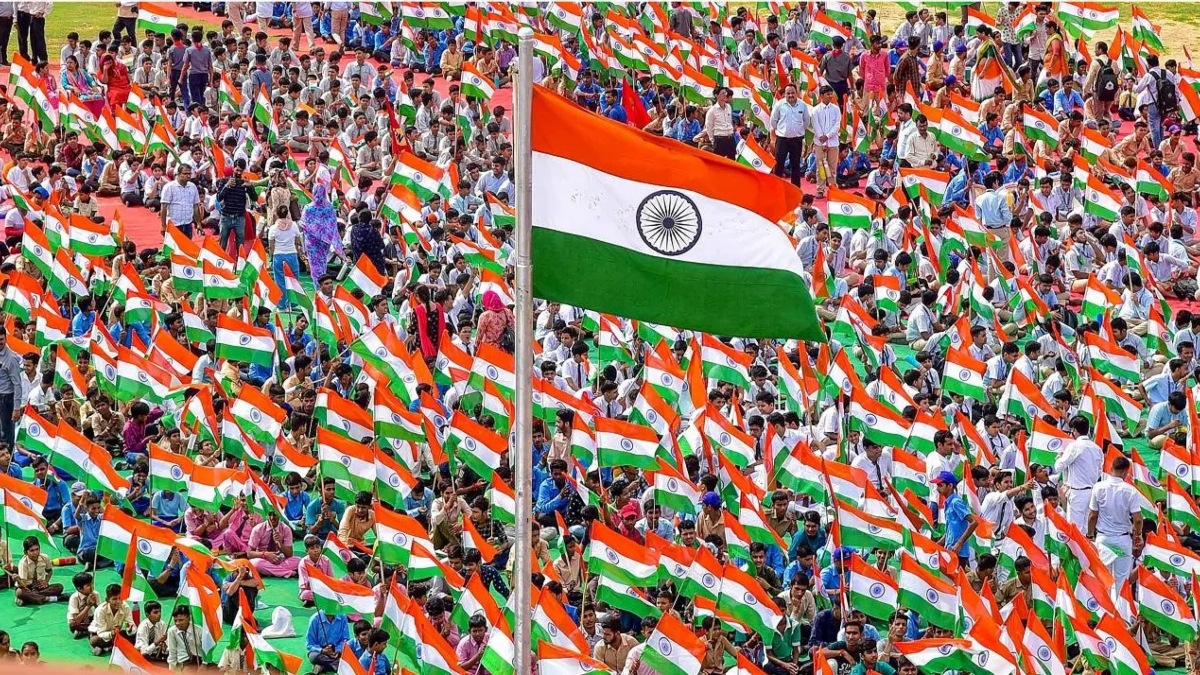Know your fundamental duties.
India is celebrating its 75th Republic Day on 26 January 2024. On this day in the year 1950, the Constitution of our country came into force. The country’s first President, Dr. Rajendra Prasad, hoisted the flag with a 21-gun salute and declared India a full-fledged republic. did. India is a democratic country and our Constitution gives every kind of freedom and rights to its citizens. But do you know that along with the fundamental rights of the citizens, fundamental duties have been prescribed in the Constitution of the country. You may also be punished for not following these fundamental rights. Let us know what are these fundamental rights and the provision of punishment for not obeying them.
Know the history of fundamental duties
The idea of fundamental duties in the Constitution of India is inspired by the Constitution of Russia (erstwhile Soviet Union). The Fundamental Duties were added in the 42nd Constitutional Amendment Act, 1976 by the recommendations of the Swarn Singh Committee. Originally the number of fundamental duties was 10, later one more fundamental duty was added through the 86th Constitutional Amendment Act, 2002. The fundamental duties are listed in Article 51-A (Part-IV-A) of the Constitution.
Here is the list of fundamental duties:
- Adhere to the Constitution and respect its ideals, institutions, national flag and national anthem.
- Keep in your heart the high ideals that inspired the national movement for independence and follow them.
- Protect and keep intact the sovereignty, unity and integrity of India.
- Protect the country and serve the nation when called upon.
- Create a spirit of harmony and common brotherhood among all the people of India, transcending all discrimination based on religion, language, region or class, and abandon such practices which are against the dignity of women.
- Understand the importance of the glorious tradition of our composite culture and preserve it.
- Protect and improve the natural environment including forests, lakes, rivers and wildlife and have compassion for living beings.
- Develop humanism and the spirit of learning and improvement from a scientific point of view.
- Protect public property and stay away from violence.
- Make continuous efforts to move towards excellence in all spheres of individual and collective activities so that the nation can progress and achieve new heights of achievement.
- To provide educational opportunities to their children between the ages of six and fourteen years (added 2002).
What are the provisions for punishment?
The purpose of including fundamental duties in the Constitution of India is to awaken the feeling of national interest in the minds of the citizens. There is no direct provision of punishment for non-compliance of these duties. Citizens are expected to perform their duties. However, many fundamental duties are also protected by special laws. For example, the national flag is protected under the Indian Flag Code law. If it is violated, it can lead to 3 years of jail, fine or both.
Other duties also protected by law
Apart from desecration of the national flag, many other fundamental duties are also protected by law. For example, if you damage the public property of the country, you can be punished with both jail and fine. Similarly, there is law to maintain the integrity of the nation. You may be booked for treason for anti-national activities.
Also read- Why was 26th January chosen to implement the Constitution, what was its importance?
Also read- Republic Day 2024 LIVE Updates: The country is celebrating 75th Republic Day, a glimpse of women power will be seen on the path of duty.
Latest India News
